Angel Blade (エンジェル・ブレード), released 7/3/1997, developed by Nippon Ichi, published by On Dimaend

This game is notable for being Nippon Ichi’s entry into the world of SRPGs, although since it was published by a different company their name is not prominent. After this game the next pseudo-SRPG was the first Marl Kingdom game (“Rhapsody” in English). It wasn’t until 2002 with La Pucelle and of course 2003’s Disgaea that they really came to prominence. (Incidentally, there is an eroge with the same title as this, although that one is spelled ブレイド instead of ブレード).
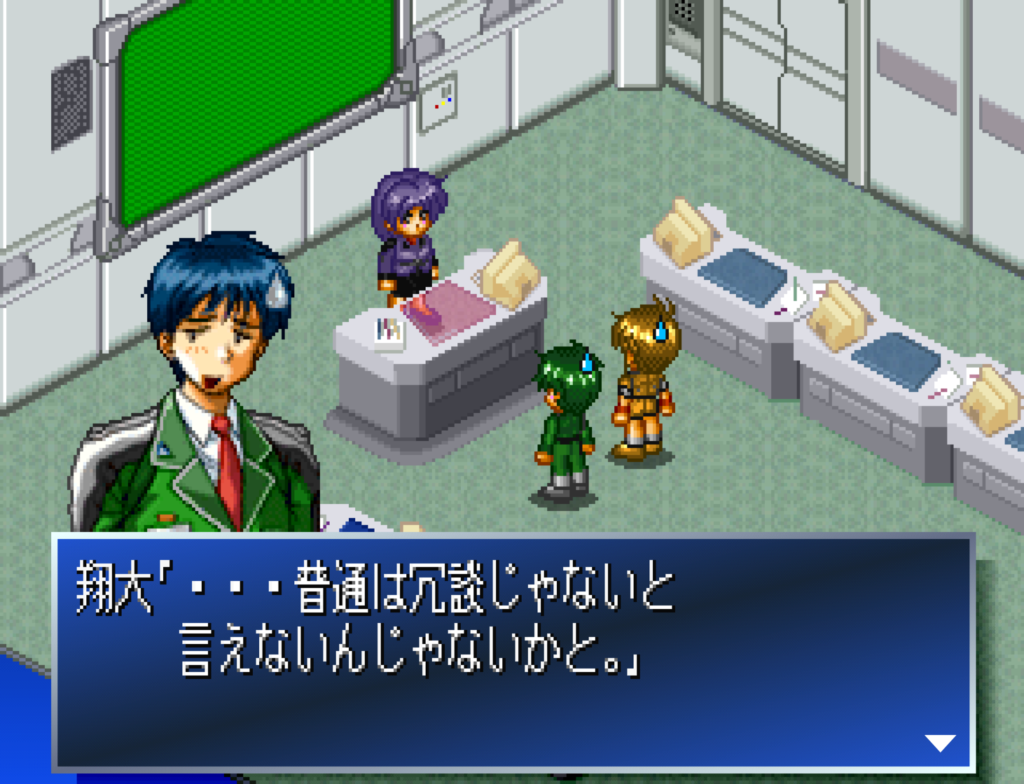
Overall the game is insubstantial in almost every way — it’s fast to play and can be beaten in around 6 hours with little trouble, but it doesn’t have much to offer. The story is just a string of parodies, gags, and meta-humor (the instruction manual even calls the story segments “comical parts”). The main characters are 4 girls and a guy who are members of the Neo Tokyo Guardians’ 6th division, fighting against an intentionally stereotypical evil organization. There is little character development and only a very slight bit of more serious plot at the end.
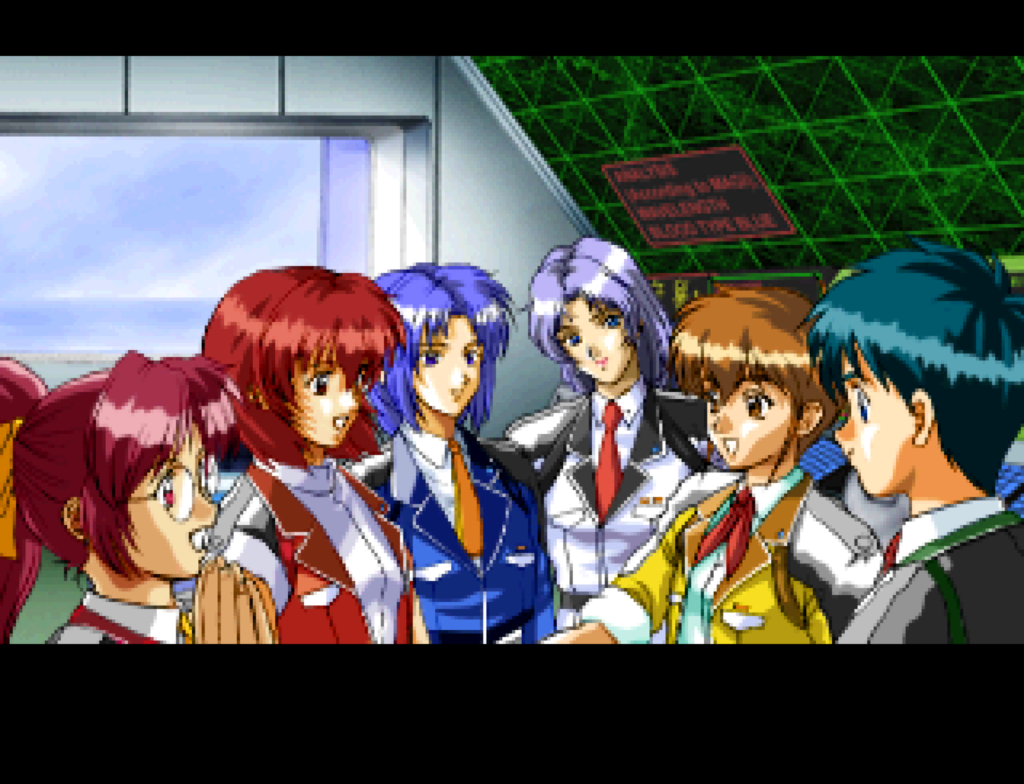
All the dialogue is voice acted, but the voicing is amateurish and it glitched a lot for me so I turned it off.
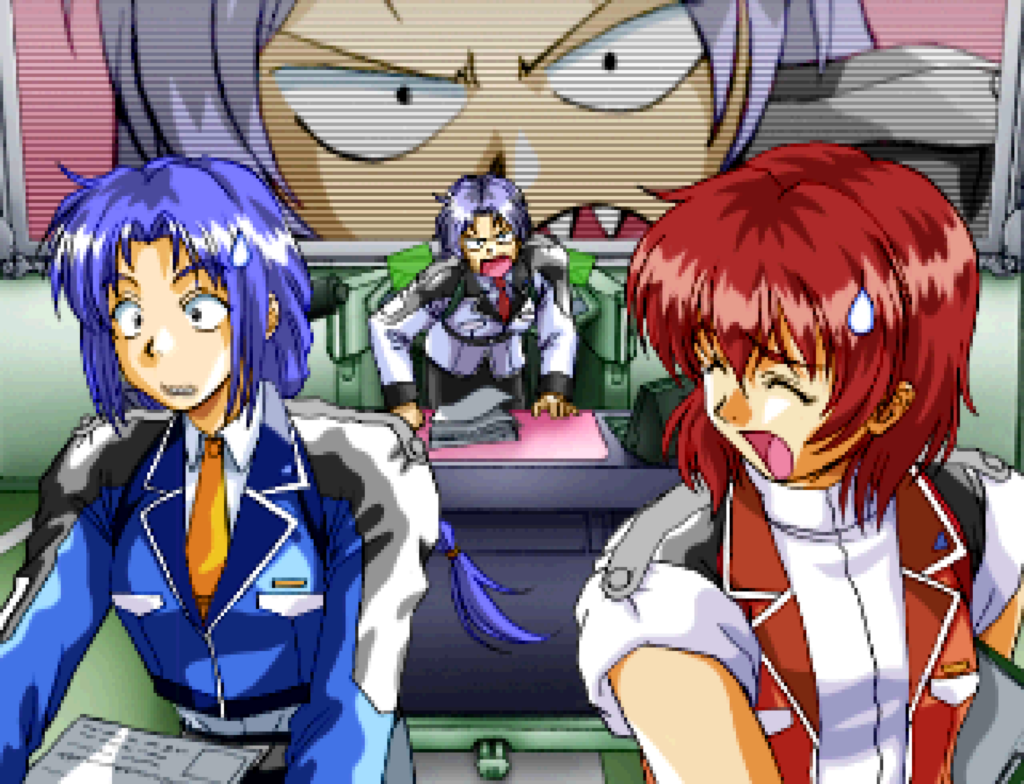
The battle system is average. Each character has a set number of AP (4 at the beginning, 8 in the latter half of the game). Each square of movement costs one AP and attacks cost from 1-4 AP depending on their strength. It’s a player turn-enemy turn system. In addition to a variety of special attacks, there are also multi-person formation attacks.
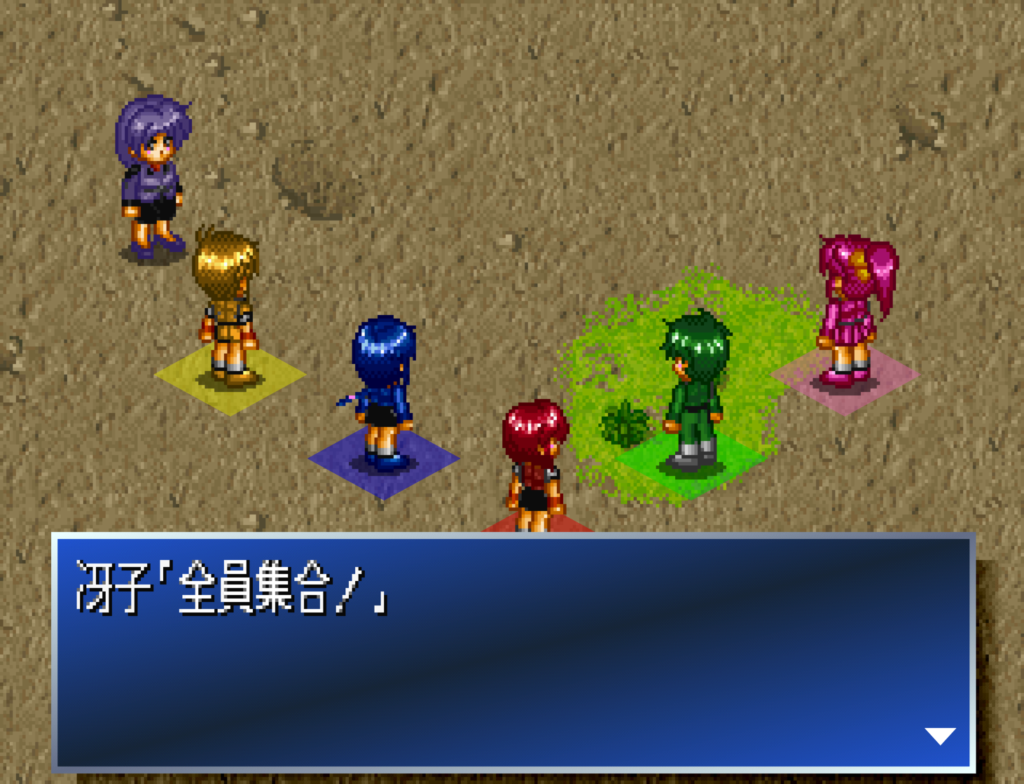
There is no equipment. There are some items you can find randomly on the map. Rather than levels, at the end of each stage, all characters get 3 points to put into various stats, with an additional 1 point to people who performed well in the battle.
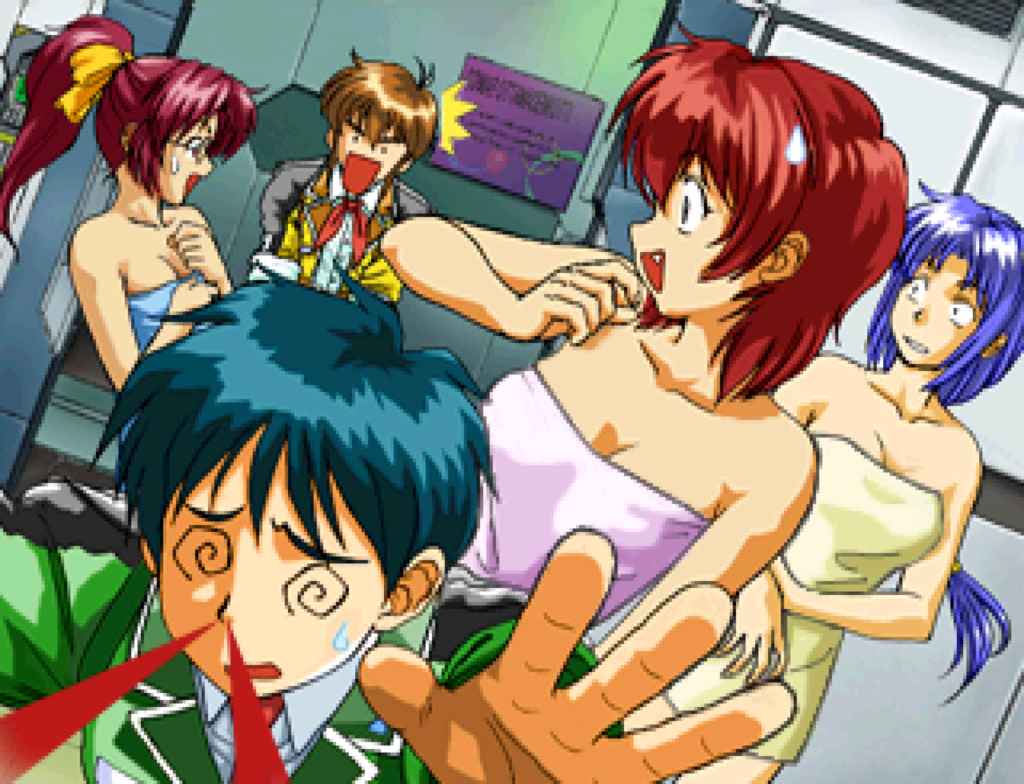
However, there seems to be no particular reason to give one person or another certain stats. It’s also a moot issue because the game is pathetically easy. All you have to do is let the enemies come to you and you can kill most of them before they can attack. The bosses often sit still and have no ranged attacks, so there is no danger for them at all. The special multi-person attacks are too hard to set up, and the two times they force you to use them, the enemy doesn’t move.
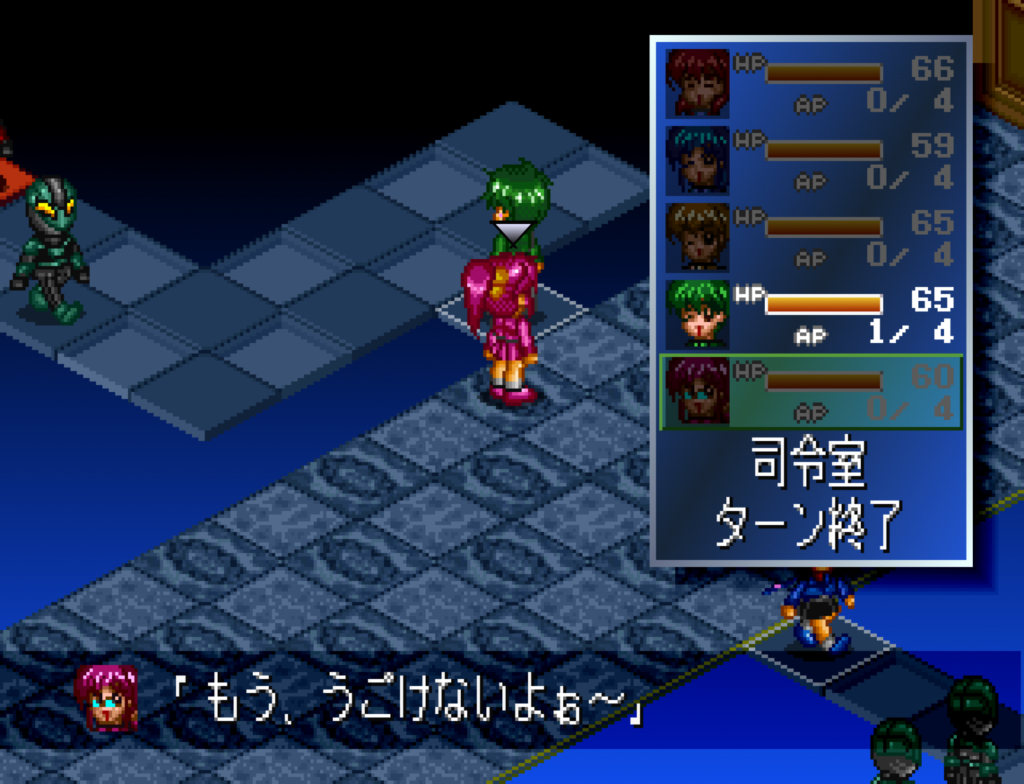
The game is relatively fast moving for the most part, so it’s playable if you aren’t offended by the non-existent difficulty. But it also has nothing of substance to offer — even the jokes get old after a while.
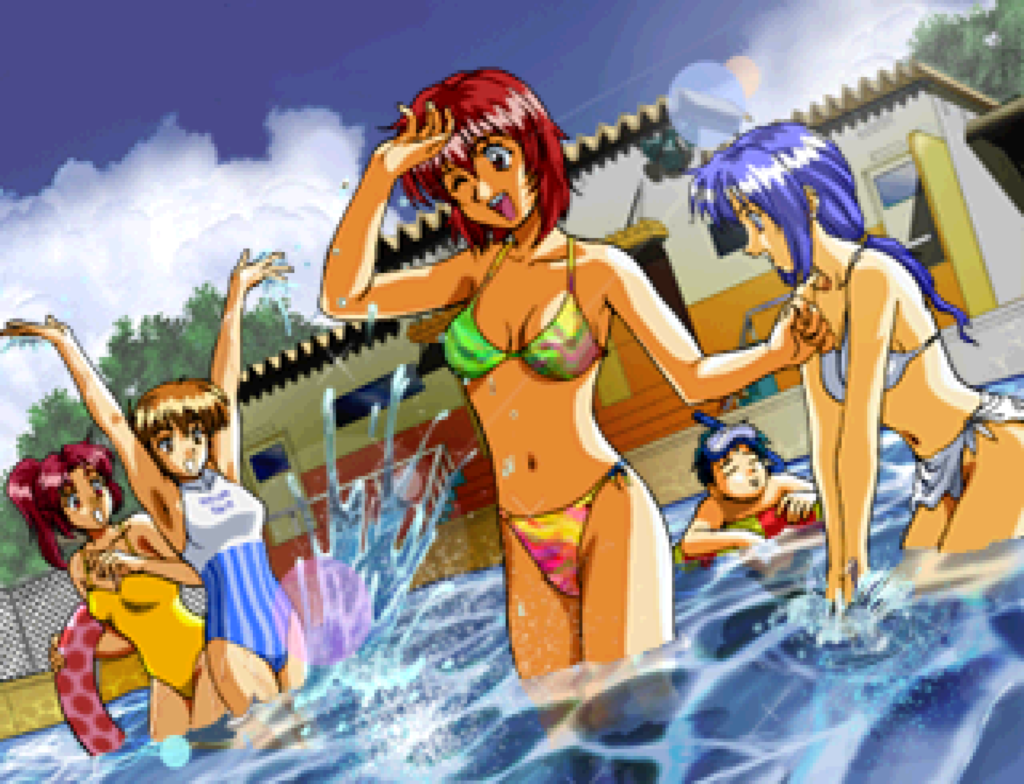
After playing this game you might have low hopes for Nippon Ichi’s future success — I suppose that it does show the buds of the meta-humor, parody, and gags that will reoccur in the Disgaea series, but there’s really no reason to play the game.
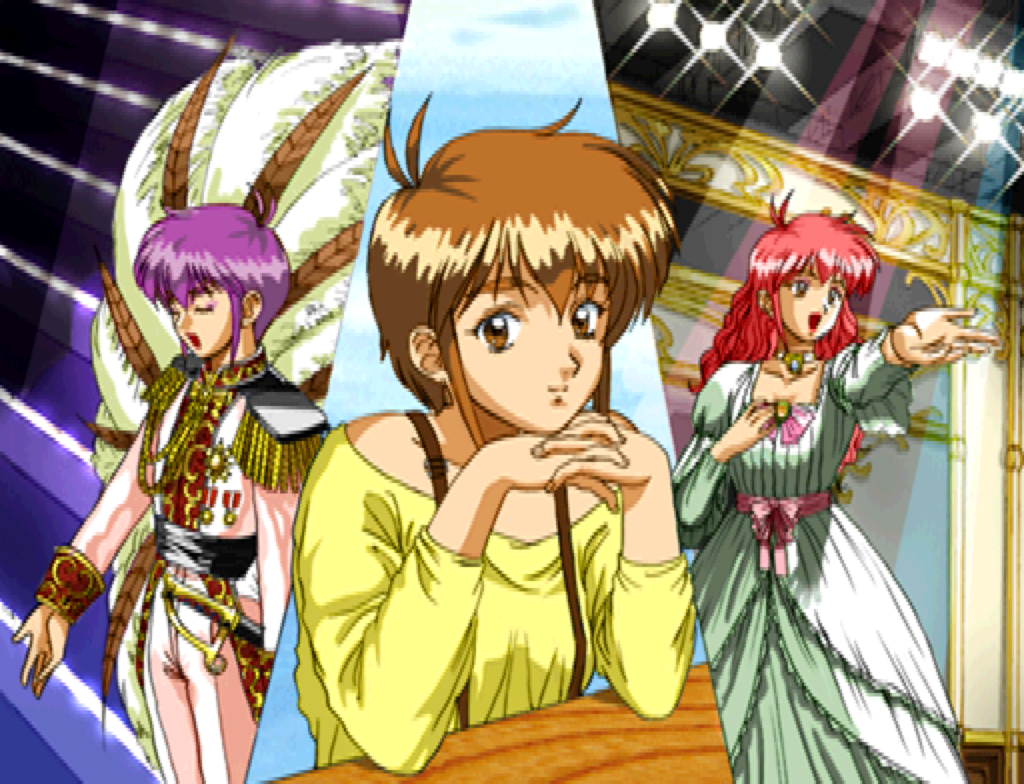
Befitting the way you refer to this as insubstantial in most ways, this looks like the most generic ’90s anime thing I’ve ever imagined.